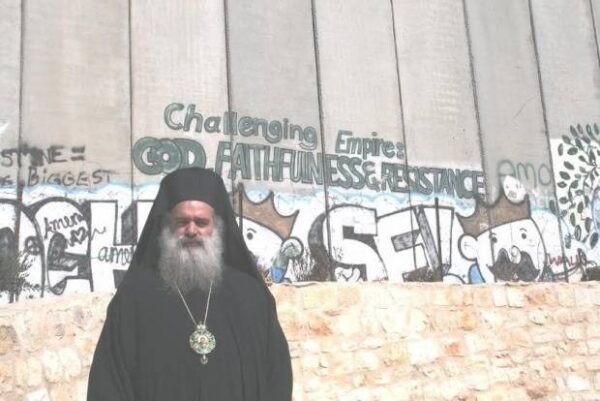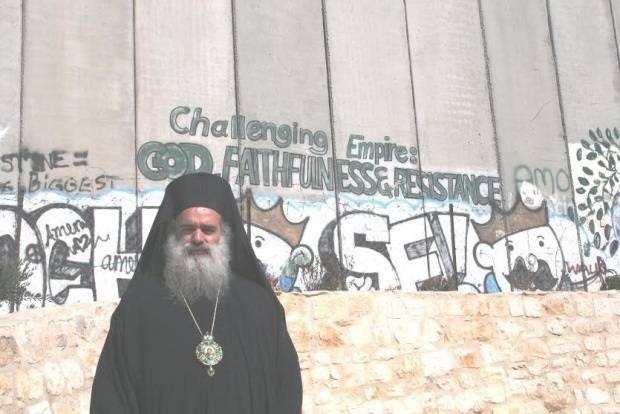
On Wednesday, August 23, ISM volunteers met with Archbishop of Sebastia, Atallah Hanna, to discuss solidarity with the Palestinian struggle and the conditions of Palestinian Christians under the occupation. The Archbishop is an outspoken critic of the occupation and has been arrested in the past and had his passports seized by the IOF for his work. During our meeting with him, he answered the following questions.
What are the conditions for Christian Palestinians under the occupation?
The situation of Christians in Jerusalem and in Palestine generally does not differ from that of the rest of the Palestinian population. Christian Palestinians are both Christian and Palestinian; they suffer just like the rest of our Palestinian population. In fact, the occupation, with its injustice, oppression, and its targeting of the children of our Palestinian people, does not distinguish between a Palestinian Christian and a Palestinian Muslim. We all suffer from the occupation and its practices. The occupation targets us all, yet in the face of it, we remain steadfast as we hold onto our homeland. We are true defenders of the justice of our cause. I would like to take advantage of this occasion to salute all those in solidarity and all our friends who have come from different parts of the world to express their solidarity and support for the Palestinian people. Thank you.
What is your view on religious unity in the Palestinian resistance?
Christian and Muslim Palestinians are one people fighting for the same cause. We respect all religions, cultures, and peoples. We do not harbor hatred for Jews, and we are not enemies of Judaism. Instead, we reject Zionism and racism. We respect all monotheistic religions and all humans, regardless of their religion or cultural background. I believe that the force that must unite us is our love for Palestine and our fight for its liberation. The Palestinian issue/cause is not just for Palestinians; it is a cause for all free people in the world, regardless of their cultures, backgrounds, religions, or ethnicities. We reject religious fanaticism, we reject hatred, and we demand dedication to cultural diversity, forgiveness, and the acceptance of pluralism so that we are all united in our defense of Palestine.
What can internationals do to support the Palestinian cause?
I believe that your presence in Palestine [ISM] is a message in itself—a message of solidarity that affirms the justice of the Palestinian cause. Of course, we appreciate your efforts and your volunteering. It is essential that upon your return to your countries, you carry the message of the Palestinian people to your own communities. What we desire are friends from around the world, people who understand the justice in our cause. We hope that you can become ambassadors for Palestinians in your countries and the nations to which you belong.

